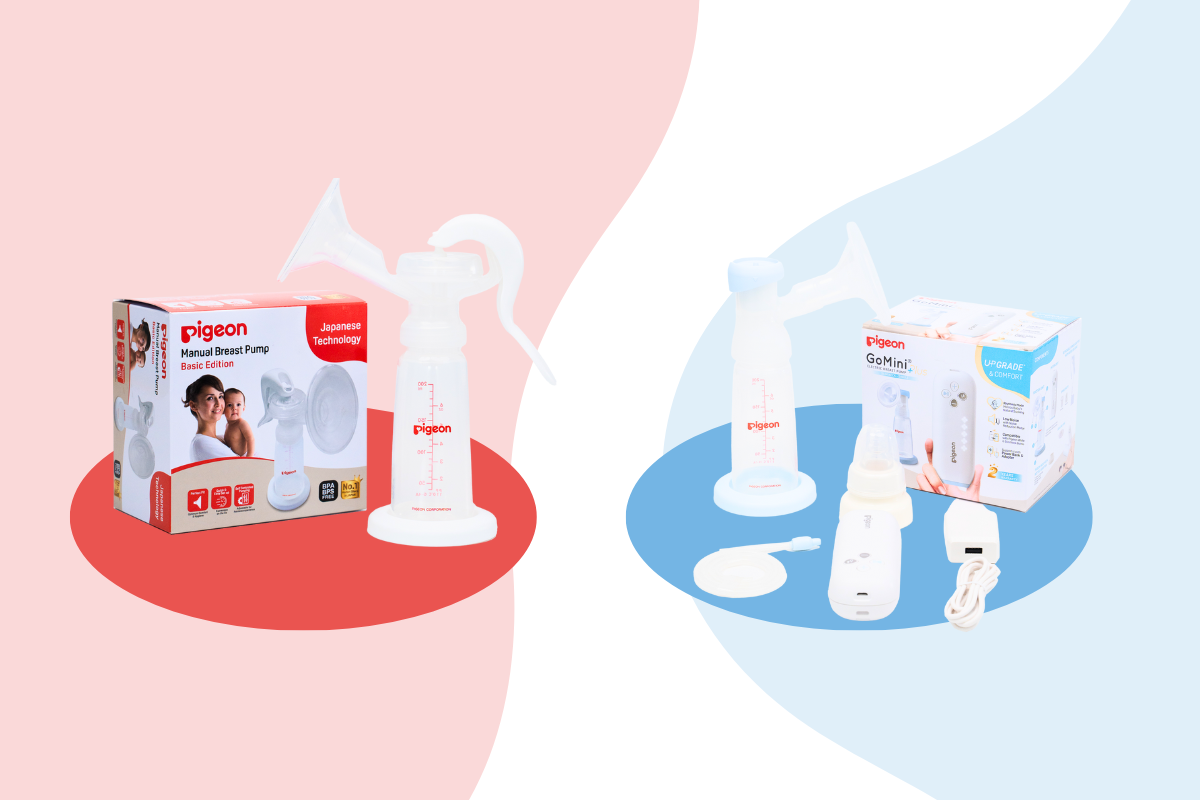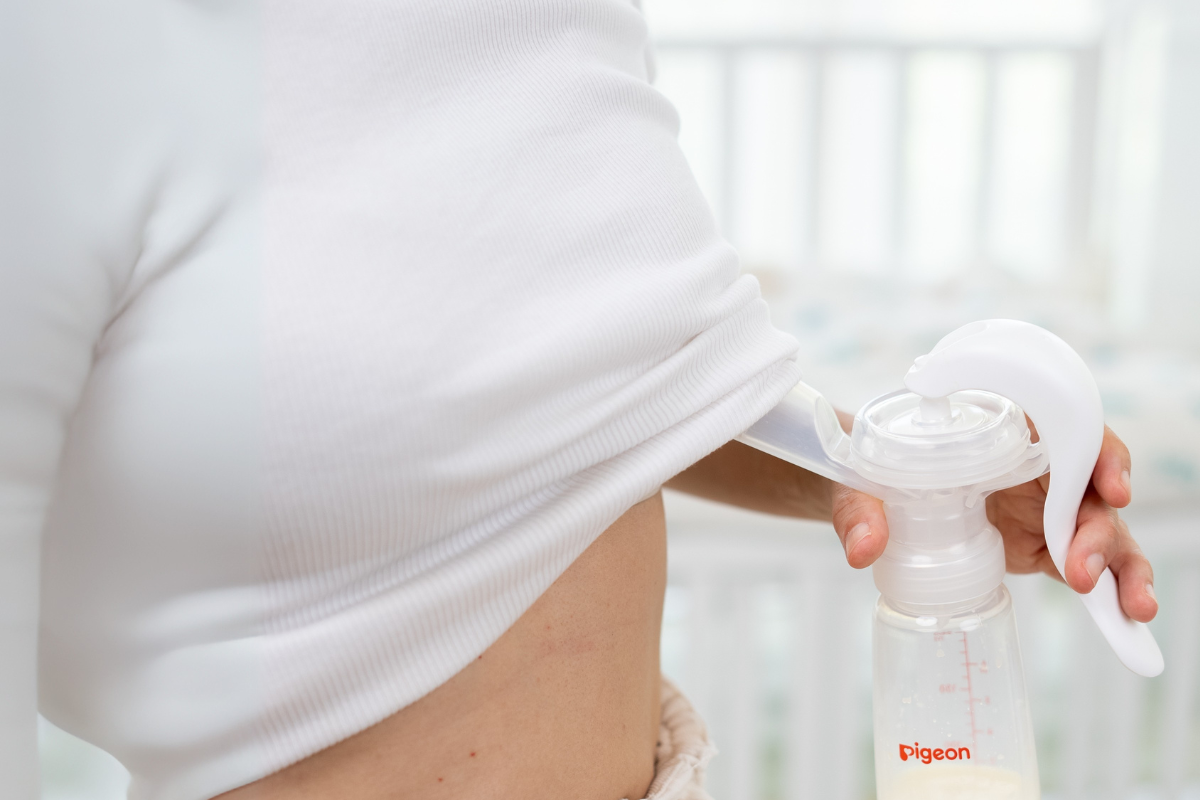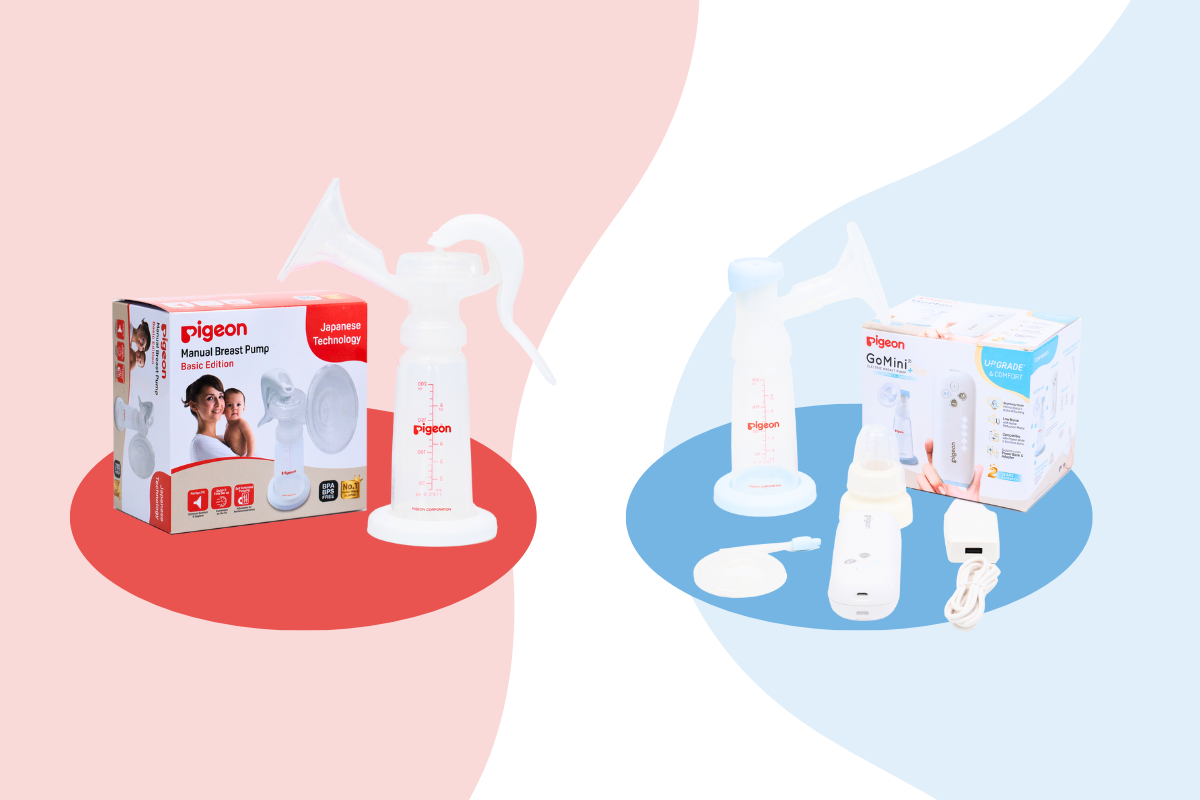According to a report, India's breast pump market size was valued at USD 0.23 billion in 2022 and is expected to reach USD 0.59 billion by 2030, at a CAGR of 8.2% from 2023 to 2030
Breast pumps are becoming a convenient and flexible choice for moms when it comes to breastfeeding. The usage is expected to grow even more in the future, with women becoming career-oriented and multi-tasking, it becomes difficult to manage breastfeeding time for the baby.
But no worries, as breast pumps are the ultimate solution to this problem, but, choosing from a variety of options available in the market can be a daunting task.
If you are also a mom, confused between manual vs electric breast pump, we got you!
In this blog, we will address all your doubts, from which type of breast pump is good for you to giving you really helpful tips for making the right choice.
Introduction to Breast Pumps
Breast pumps have revolutionized the breastfeeding experience, allowing mothers to express milk at their convenience. They can be particularly beneficial for working mothers, those dealing with latching issues, or anyone wanting to share feeding responsibilities with a partner.
Breast pumps come in two primary types: manual breast pumps and electric breast pumps.
Each serves the same purpose but caters to different needs and preferences. Let’s understand the two more in detail!
Types of Breast Pumps
Manual Breast Pumps

Manual breast pumps are handheld devices designed to help mothers express breast milk without electricity or batteries. They are typically compact, portable, and easy to use, making them a convenient option for on-the-go mothers. The pump uses a hand-operated mechanism to create suction, which helps extract milk from the breasts.
Pros of Manual Breast Pumps:
- Portability: Manual breast pumps are compact and lightweight making them ideal for on-the-go use. They can be carried anywhere as they occupy only a little space.
- Affordability: When compared to any other breast pump, manual breast pumps are generally more budget-friendly.
- Quiet Operation: Manual Breast pumps don’t produce sound and are almost silent while the usage, offering discretion in public or at work.
Cons of Manual Breast Pumps:
- Effort-Intensive: Unlike the electric breast pump, manual breast pumps require physical effort, which can be tiring sometimes, especially for regular use.
- Time-Consuming: Because you are pumping the milk manually, manual breast pumps are slower than electric pumps, making them less efficient for frequent pumping.
Electric Breast Pumps

An electric breast pump is a convenient and efficient device that uses a motor to generate suction, allowing mothers to express milk with minimal effort. Designed for hands-free or low manual intervention, it saves time and ensures consistent suction for comfortable and effective milk extraction.
Pros of Electric Breast Pumps:
- Efficiency: Electric breast pumps are faster and more effective, especially for mothers who pump multiple times a day.
- Adjustable Settings: In the electric breast pump, you can customize the suction and speed levels as per your needs.
- Double Pumping Options: Some models allow simultaneous pumping from both breasts, which can significantly save you time.
Cons of Electric Breast Pumps:
- Expensive: Electric breast pumps are typically more expensive than manual pumps.
- Portability: Electric breast pumps can be a little bulkier and can occupy more space when compared to manual breast pumps.
- Noise: While newer models are quieter, some electric breast pumps can still make noticeable sounds.
Manual vs. Electric Breast Pumps: Key Differences
Now that we have understood the basics of manual and electric breast pumps, let’s understand through a comparison table what makes the two different and unique from each other, so the next time when you come across the manual vs electric breast pump, you know which one will be your breastfeeding journey bff!
|
Feature |
Manual Breast Pump |
Electric Breast Pump |
|
Ease of Use |
Requires hand effort |
Motorized and less labor-intensive |
|
Portability |
Lightweight and travel-friendly |
Heavier in comparison to manual breast pumps and requires a power source |
|
Speed |
Slower pumping due to the manual process |
Faster and more efficient |
|
Price |
Budget-friendly |
Can be a little pricey when compared to a Manual Breast Pump |
|
Noise Level |
Silent operation |
May produce a slight noise |
|
Control and Customization |
Offers greater control over suction strength and rhythm as the user manually adjusts the pumping motion. |
Often comes with pre-set or adjustable suction levels and speeds, but control is limited to the device's settings |
|
Power Source Dependency |
No need for electricity or batteries, making it usable anywhere without worrying about power availability |
Requires batteries, a power outlet, or a rechargeable unit, which may limit use in certain locations |
|
Learning Curve |
May require practice to get the right suction and rhythm, which can be tiring initially. |
Typically easier for beginners as the machine handles the suction process automatically |
The manual vs electric breast pump debate often boils down to personal preference and daily requirements. If you pump occasionally, manual pumps are perfect. However, for frequent use, electric pumps save time and effort.
Price Range: Manual vs. Electric Breast Pumps
The cost of a manual vs electric breast pump is a significant consideration for most parents. The price range for these breast pumps mainly depends on the brand's reputation, material quality, design and customization, manufacturing location, longevity, and warranty.
In the Indian market, the price range for the manual breast pump can vary from ₹600 to ₹15,000, while the price range for electric breast pumps can vary from ₹4000 to ₹20,000+.
You can also explore the Pigeon Breast Pumps for your breastfeeding needs!
Pigeon Manual Breast Pump

Price: ₹1249
Buy Now : https://pigeon-in.com/products/manual-breast-pump-essential
Pigeon Electric Breast Pump

Price: ₹7,999
Buy Now: https://pigeon-in.com/products/gomini-plus-electric-breast-pump-single-sn
Who Should Use a Breast Pump: Manual vs. Electric
A survey shows that around 80% of the total working women choose to use breast pumps during their lactation period. Women who have job-related commitments or are multitasking in their day-to-day lives need a reliable solution for breastfeeding.
Other than the working population, women with some health issues, latching issues, or any other breast-related issues find breast pumps a comfortable and convenient method to breastfeed their baby.
Breast pumps are also recommended by the physician or gynecologist to the moms. The choice between a manual vs electric breast pump totally depends on individual needs and preferences.
Gradually the hesitation about using breast pumps in moms is reducing and they are actively opting for it.
But If you are still unsure about using a breast pump in your breastfeeding journey read why every mom should consider using a breast pump.
Manual Breast Pumps Are Ideal For:
- Mothers who pump occasionally or as a backup to direct breastfeeding.
- Those who travel often and need a lightweight, portable solution.
- Parents on a tighter budget.
Electric Breast Pumps Are Ideal For:
- Working mothers who pump multiple times a day.
- Mothers of twins or multiples, who may require double pumping.
- Those who value efficiency and customizable features.
Making the Right Choice
When deciding between manual vs electric breast pumps, consider the following factors:
- Frequency of Use: If you pump occasionally, a manual pump may suffice. For daily or frequent pumping, an electric pump is more practical.
- Budget: While manual pumps are cost-effective, electric pumps offer more features and convenience, often justifying the higher price.
- Lifestyle: A portable manual pump is ideal for mothers on the go, whereas electric pumps are better suited for home or workplace use.
- Comfort: Electric pumps often provide adjustable settings for a more comfortable experience, which can be a significant factor for sensitive users.
Takeaway
Between manual vs electric breast pumps, the ultimate goal is to find a solution that aligns with your needs and lifestyle. While manual breast pumps offer simplicity and affordability, electric breast pumps excel in efficiency and ease of use.
By considering your pumping habits, budget, and preferences, you can make the best choice for you and your baby.
When searching for the perfect breast pump, prioritize quality and comfort. After all, a well-suited breast pump can make your breastfeeding journey more enjoyable and stress-free.
Shop now with Pigeon India for all your baby needs!




















































